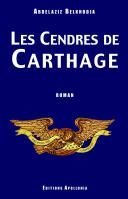 This weekend I finished reading Getting Things Done: The Art of Stress-Free Productivity by David Allen, the personal productivity and self-management guru.
This weekend I finished reading Getting Things Done: The Art of Stress-Free Productivity by David Allen, the personal productivity and self-management guru.
I’ve heard so so much about this book over the past years, read many reviews, went through so many productivity blogs that base their ideas and advice on the teachings of this book, and well, I just had to read it.
I can confirm that the hype is well deserved, this book can be a life-changing one if you choose to apply the simple ideas and tips in it. It will take you from being swamped with things to do and stress, to being well-organized, clear-minded and stress-free when it comes to whatever you need to do.
I’ve already started setting up two parallel systems based on the tips in the book, one for my work and the other for my personal life, and I’m already feeling how much potential they hold to enhance my productivity and relieve me from the extra stress of everyday life and the accumulated stuff I have to do.
This book is a must-read, I truly recommend it to everyone, and if it weren’t so damn hard to buy things online from Tunisia, I’d order a copy each for all my friends and colleagues; yes it’s that good.
Check it out yourself here: Getting Things Done: The Art of Stress-Free Productivity

